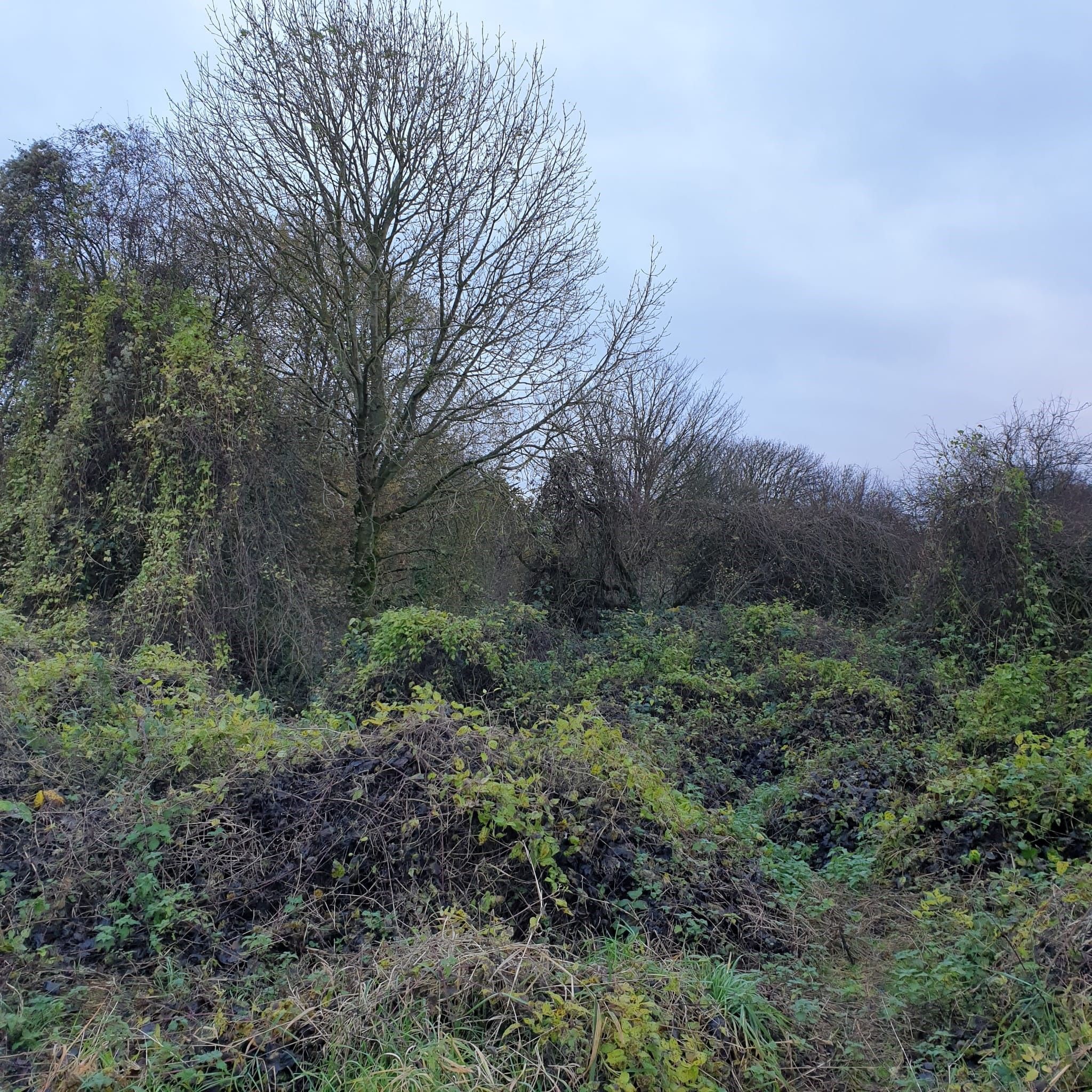
The women’s quarters
The mid-November evening is drawing scratchy rain across the puddles as I cross the narrow lane. On dreary days, a quick walk round the small copse opposite the house offers a good dog walk option, with plenty of sensory interest for a middle-aged labrador.
The residents of this patch of scrub and trees are hidden to me, but Boz’s twitching and pausing nose can read them like the pages of a book. The fox cubs that we saw playing in the summer have now found their new territories, but the vixen still lurks. The rabbits have scutted for cover. I can make out roe and muntjac slots, stamped in the mud like potters’ signatures on a jug base, and spot a badger’s claw mark within a fading boot print. Mine, probably. Overlapping, unseen existences.
The thicket is bounded on two sides by stubble awaiting the plough. On the third is a bird crop. Seed-bearers such as sunflowers, vervain, and field sowthistle attract fossicking finches and offer some compensation for the acres of silent wheat.
A deer-made portal tempts me to duck in below a star-shower of field maple leaves and stand beneath a hawthorn vault. Emerald moss climbs a nearby ash tree, while its self-planted companions, a papery elder and a leathery-leaved wych elm, strive for the sky. The old man’s beard clematis has spread like a sticky dustsheet, competing with the fading vermilion drapes of virginia creeper to smother the past.
History is revealed by some low crumbling brick courses and corrugated iron poking out from willowherb-strewn rubble. These are the remains of RAF Chipping Norton’s women’s quarters, once home to the WAAF’s clerks, cooks and drivers.
By the verge, a clump of bracken hides the base of an apple tree which showers its golden fruit onto ground where snowdrops spread every February. I like to imagine it grew from a pip discarded by an apple-pie baker, and that the spring flowers were planted to make the next winter a bit more bearable on this high, exposed land. Perhaps the creeper was put in to soften the hastily-built walls, and the bracken arrived on a plane from the south coast.
The plants have outlasted the women who lived and worked on this WW2 training base.
On this dull grey Remembrance Sunday, I think of them.
© Laura Parker
An article in the style and length of a Guardian Country Diary